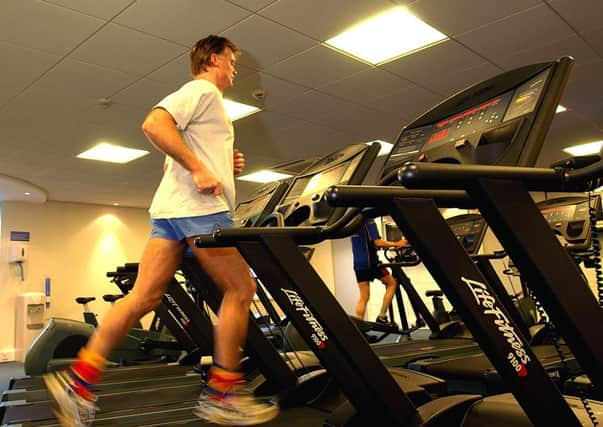‘Exercise increases desire for healthy food’ claim


The team from Aberdeen University have discovered that people who spend an hour running at speed are more inclined to select low calorie foods, such as fruit and vegetables.
It is hoped the findings by experts at the university’s Rowett Institute of Nutrition and Health will lead to improvements in how exercise interventions can be best used in the future to tackle obesity.
Advertisement
Hide AdAdvertisement
Hide AdResearch leader Dr Daniel Crabtree explained that MRI scans had been used to chart appetite responses in the brain, in one of the first studies to use brain imaging to examine the relationship between food choices and exercise.
He said: “The key aim of our research was to examine the brain’s responses to high and low calorie food following a period of acute exercise. Our focus was on a region of the brain called the insula - commonly referred to as the ‘primary taste cortex’.
“Activation in this region is increased in the anticipation of foods, and when consuming foods that we perceive as being pleasant.
He continued: “Our findings showed that activation in the insula was reduced when looking at pictures of high calorie foods such as pizzas, burgers and doughnuts, following exercise. When viewing low calorie options, for example apples, strawberries, carrots and grapes, activity in this region increased. We also asked people to rate their hunger levels and took blood samples to analyse two hormones relating to appetite stimulation and suppression.
“After running the volunteer’s feelings of hunger were suppressed, and the appetite hormone analysis showed us that levels of the appetite stimulating hormone were reduced whilst levels of the appetite suppressing hormone were increased.”
Thirst link
The scientists behind the study believe their findings may be related to greater thirst levels reported following exercise.
Dr Crabtree said: “We know that part of the brain’s insula also plays a role in regulating thirst. We therefore believe that increased activity in this region following exercise could be linked to volunteers perceiving low-calorie foods as having a greater water content than the high-calorie foods, and therefore more able to satisfy their exercise-induced thirst.
More work, he stressed, was now required to understand how this relationship between exercise and appetite could be used in the development of programmes to tackle obesity.
Advertisement
Hide AdAdvertisement
Hide AdDr Crabtree said: “Our study focused on brain activity in healthy, lean volunteers. Further studies, encompassing volunteers who are overweight or obese, and employing different workouts and intensities are required in order to formulate how this link between brain activity and exercise could be best used in the development of advice for healthy weight loss.”
The research is published today in the American Journal of Clinical Nutrition.